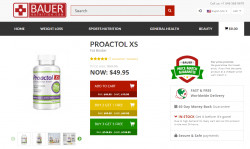Embarking on a journey to discover natural remedies for health and wellness, many have turned their attention towards the fascinating world of herbal supplements. Among these, Black Cohosh Root emerges as a standout choice for individuals seeking natural solutions for menopause symptoms, hormonal balance, and overall well-being. In this comprehensive review, we delve deep into the heart of what makes Black Cohosh Root a sought-after herbal supplement, examining its benefits, potential side effects, and the science that underpins its use.
Black Cohosh Root, scientifically known as Actaea racemosa, has been used for centuries by Native American tribes for its health benefits, and it has since gained popularity in the Western world for its effectiveness in alleviating menopausal symptoms such as hot flashes, mood swings, and sleep disturbances. But the benefits of Black Cohosh Root extend beyond menopause relief. This versatile herb also offers potential benefits for menstrual discomfort, hormonal balance, and even some studies suggest its use in arthritis and osteoporosis management. As we navigate through the myriad of herbal supplements available in the market, it’s crucial to rely on evidence-based information to make informed decisions about our health. This review aims to provide a thorough examination of Black Cohosh Root, backed by scientific research, user testimonials, and expert opinions, to help you understand whether this herbal supplement is the right choice for your health and wellness journey.
Ingredients of Black Cohosh Root
Based on the information sourced from the National Center for Complementary and Integrative Health (NCCIH) and other reputable sites, here is a summarized list of ingredients found in Black Cohosh root and information about each:
- Triterpene Glycosides: These are thought to be among the active compounds in black cohosh, potentially responsible for its effects on menopause symptoms such as hot flashes and mood swings.
- Isoflavones: Although not as prominent as in soy, isoflavones in black cohosh may contribute to its estrogenic activity, which is why it’s often used to manage menopausal symptoms.
- Phytoestrogens: These plant-derived compounds mimic the activity of estrogen in the body, potentially helping to balance hormone levels during menopause.
- Fatty Acids: Present in the root, they are essential for general health and could contribute to the herb’s overall therapeutic effects.
- Phenolic Acids: These compounds have antioxidant properties, which may help protect cells from damage and play a role in the herb’s health benefits.
- Tannins: Known for their astringent properties, tannins may contribute to the herb’s effectiveness in treating certain conditions, though they are generally not considered the main active components.
Potential Side Effects of Black Cohosh Root
here’s a list of potential side effects of black cohosh root and some details about each:
- Stomach Discomfort: Some individuals may experience stomach upset or cramping when taking black cohosh.
- Headaches: Headaches are reported as a possible side effect, which could vary in intensity.
- Rash: Skin reactions such as rashes might occur, indicating an allergic response or sensitivity.
- Feeling of Heaviness: A general feeling of heaviness has been reported, which could affect overall well-being.
- Vaginal Spotting or Bleeding: Some women might experience changes in their menstrual cycle, including spotting or unexpected bleeding.
- Weight Gain: There have been reports of weight gain in some individuals taking black cohosh, though this is not universally experienced.
- Liver Damage: Although rare, there have been reports of liver damage, which makes it crucial for individuals with liver disorders or those taking other liver-impacting substances to consult a healthcare provider before using black cohosh.
What people are saying about Black Cohosh Root
Black cohosh root has been the subject of various studies and discussions, particularly concerning its efficacy in treating menopausal symptoms such as hot flashes, night sweats, vaginal dryness, and mood changes. Some high-quality randomized controlled trials and systematic reviews have been conducted to evaluate its effectiveness and safety. For instance, studies have compared black cohosh to placebo, hormone therapy, and other herbal supplements, often finding no significant difference in the reduction of menopausal symptoms between the black cohosh groups and placebo. A notable study found that participants consuming a multibotanical preparation including black cohosh and soy foods experienced worse symptom intensity compared to those on a placebo after 12 months. Another study showed that black cohosh did not significantly reduce the number of vasomotor symptoms compared to placebo and had worse symptom intensity at certain points during the trial. These findings suggest that black cohosh may not be more effective than a placebo in alleviating menopausal symptoms.
The American College of Obstetricians and Gynecologists and The North American Menopause Society have both indicated that there is insufficient evidence to support the efficacy of black cohosh for treating vasomotor symptoms associated with menopause. A Cochrane Review and a 2016 systematic review also concluded that there is insufficient evidence to support or oppose the use of black cohosh for menopausal symptoms, recommending further high-quality research to better determine its effectiveness.
Regarding safety, black cohosh has been associated with a low incidence of adverse effects, mainly gastrointestinal upset and rashes. However, concerns have been raised about its potential impact on liver health, with reports of liver damage in some individuals, though a direct causal relationship has not been established. Regulatory bodies in Australia and recommendations by the U.S. Pharmacopeia have led to cautionary labeling on products containing black cohosh, advising monitoring for symptoms of liver trouble. Pregnant women are advised against taking black cohosh without supervision due to the lack of rigorous evaluation of its use during pregnancy.
About the company behind Black Cohosh Root
Mountain Rose Herbs is the company behind the Black Cohosh Root product. They specialize in offering a wide range of natural and organic products, including herbs, spices, teas, essential oils, and various health and beauty items. The Black Cohosh Root they provide is organic and kosher certified, underscoring their commitment to quality and sustainability. Mountain Rose Herbs is deeply rooted in principles of organic agriculture, ethical sourcing, and sustainability, which are core to their business practices. They offer a variety of product sizes for Black Cohosh Root, catering to different customer needs, and emphasize the herb’s traditional use and benefits, particularly its significance in Native American herbal medicine.
The company has established a comprehensive approach to sustainability, as indicated by their new Sustainability Rating System. This system assesses various aspects such as origin distance, organic certification, fair trade practices, zero waste initiatives, energy conservation efforts, and more, to provide transparency about the environmental impact of their products. Mountain Rose Herbs is based in the United States and takes pride in its efforts to support local herb growers, herbal educators, and the broader community through donations, sponsorships, and a commitment to environmental stewardship.
A look at Black Cohosh Root’s BBB profile
Mountain Rose Herbs, based in Eugene, Oregon, specializes in certified organic bulk herbs, teas, and spices. The company has been in business for 37 years, starting in 1987, and operates as a corporation with several locations, including a mercantile store. Despite its focus on organic and natural products, Mountain Rose Herbs currently holds an “F” BBB rating and is not BBB accredited. Over the past 3 years, there have been 6 customer complaints closed, with none closed in the last 12 months. Customer reviews on the BBB site average 1 out of 5 stars based on 2 reviews, indicating some dissatisfaction among consumers. Complaints and reviews have highlighted issues such as delivery problems, with one customer mentioning a significant delay and lack of transparency regarding their order status. Another review criticized the company’s internal culture and treatment of employees. It’s worth noting that BBB ratings and customer feedback reflect a specific moment in time and may not represent the overall customer experience with the company.
Where to buy and price of Black Cohosh Root
You can purchase Black Cohosh Root in various forms from several online retailers. For instance, Botanic Choice offers Black Cohosh Root Liquid Extract in a 1 oz size, although the price is not listed on the page reviewed. Another option for Black Cohosh products can be found on GNC’s website, but due to access restrictions, the specific product details and prices were not available. Additionally, TeaHaven.com sells Black Cohosh Root Tea Bags, with prices starting at $35.99, offering a savings of $3.00 from the MSRP of $38.99. Options are available for purchasing different quantities of tea bags, which may offer additional savings.
What is the refund policy of Black Cohosh Root
I couldn’t find any information
Black Cohosh Root contact information
I couldn’t find any information
Pros and cons of Black Cohosh Root
Here are the pros and cons of Black Cohosh Root:
Pros:
- Painkilling Effect: Black cohosh binds to the body’s opioid receptors, providing a painkilling effect which can be useful in reducing muscle aches and body pains associated with menopause, perimenopause, and postmenopause.
- Traditional Use for Pain and Nervous System Support: Traditionally used in both Chinese medicine and Western herbal traditions to reduce musculoskeletal pain and spasms, support liver function, the nervous system, and tonify the kidney and uterus. It’s also used for arthritis, muscle problems, menstrual cramps, and PMS symptoms.
- Potential for Reducing Menopause Symptoms: While not consistently effective for hot flashes, black cohosh may help reduce other menopausal symptoms such as depressed mood, fatigue, and increased body pain.
Cons:
- Limited Effectiveness for Hot Flashes: Research has not consistently supported the use of black cohosh for hot flashes, a common menopause symptom. Some studies found no significant difference between black cohosh and placebo.
- Side Effects: Though uncommon, side effects can include breast pain or enlargement, cramping, headache, mild weight gain, muscle pain, rash, upset stomach, and vaginal spotting.
- Potential Liver Health Risks: There have been reports of liver failure following the use of black cohosh, though a direct link is uncertain. It’s advised that those with liver disease avoid it or use it with caution and monitor liver function.
- Not Safe for Pregnant or Breastfeeding Individuals: Due to its impact on hormones, black cohosh should not be used by those who are pregnant or breastfeeding.
Is Black Cohosh Root worth a try?
Black Cohosh Root has been traditionally used for a variety of purposes, especially related to women’s health issues such as menopause symptoms, menstrual cramps, and to support the kidney and uterus. It’s known for its potential to reduce pain associated with arthritis, muscle problems, nervous spasms, and premenstrual syndrome (PMS). Indigenous peoples of North America have also used it for pain relief during periods, childbirth, and menopausal symptoms. Some physicians have employed black cohosh for gynecological disorder-related pain. However, its efficacy, especially for hot flashes during menopause, remains a topic of debate among researchers. Some studies suggest it might help, but the evidence is not consistently supportive.
Beyond menopause symptoms, black cohosh has been explored for other health benefits. It may help manage Polycystic Ovary Syndrome (PCOS) and provide a safer alternative to Hormone Replacement Therapy (HRT), potentially reducing the risk of breast cancer associated with long-term HRT use. Evidence also suggests it may reduce bone loss or osteoporosis and help treat uterine fibroids, as well as reduce anxiety through its impact on GABA receptors. These benefits position black cohosh as a noteworthy natural remedy for women’s health issues.
Despite these potential benefits, the safety and efficacy of black cohosh are not fully established. Clinical trials have generally shown it to be safe for up to 12 months of use, with mild side effects like stomach upset, cramping, and headache being reported. However, there have been rare cases of liver damage, and its safety for people with liver disorders, pregnant or breastfeeding women, and those with hormone-sensitive conditions like breast cancer remains uncertain.
When considering black cohosh, it’s crucial to consult with healthcare providers, particularly because of the variability in study results and concerns about product quality. Using black cohosh from reputable sources and ensuring any health strategies are discussed with healthcare providers are key steps for those interested in trying this supplement.
Black Cohosh Root FAQ
- What is Black Cohosh?
Black Cohosh is a flowering perennial plant known scientifically as Actaea racemosa or Cimicifuga racemosa. It’s part of the buttercup family, featuring fragrant white blooms and can grow up to 5 feet tall. It’s found in the woodlands of the eastern United States and Canada and is also known by names like Black Bugbane, Black Snakeroot, Fairy Candle, Macrotys, Rattleweed, and Rheumatism Weed. - What are the benefits of Black Cohosh?
Traditionally, Black Cohosh has been used to reduce pain and calm the nervous system. It binds to the body’s opioid receptors, offering a painkilling effect. It is used to alleviate muscle aches, body pains associated with menopause, perimenopause, and postmenopause, support liver function, and tonify the kidney and uterus. It has also been used to treat arthritis, menstrual cramps, nervous spasms, PMS symptoms, and gynecological disorder pains. - Can Black Cohosh help with hot flashes?
Black Cohosh is marketed as a remedy for hot flashes, which are common during menopause. However, research has not consistently supported its effectiveness for this use. While it contains phytochemicals that may have a serotonin-like effect on the body’s temperature regulation, not all Black Cohosh plants produce this phytochemical, and studies have found no significant difference in hot flash relief between those who take Black Cohosh and those who take a placebo. - Is Black Cohosh safe to use?
Generally, Black Cohosh is safe when taken appropriately. However, some side effects may include breast pain or enlargement, cramping, headache, mild weight gain, muscle pain, rash, upset stomach, and vaginal spotting. There have been reports of liver failure associated with its use, so those with liver disease should avoid it or use it cautiously. It is also not recommended for pregnant or breastfeeding individuals due to its impact on hormones. - How should Black Cohosh be taken?
The standard dosage of Black Cohosh extract is 40 mg to 128 mg daily for up to 12 months. It can be prepared as tinctures, capsules, or brewed at home by simmering 1 cup of water with 1/2 to 1 teaspoon of dried Black Cohosh root for 10 to 15 minutes, and drinking up to three cups per day. For quality assurance, it is recommended to purchase organic Black Cohosh from reputable companies that have been independently verified.





![LA-3 Review [year] - Side Effects & Ingredients LA-3 Review ([year]) - Side Effects & Ingredients](https://www.miriamwellness.com/wp-content/uploads/2023/11/LA-3-Review-2023-Side-Effects-Ingredients-150x150.jpg)
![Pruvit KETO OS Review [year] - Side Effects & Ingredients Pruvit KETO OS Review ([year]) - Side Effects & Ingredients](https://www.miriamwellness.com/wp-content/uploads/2023/11/Pruvit-KETO-OS-Review-2023-Side-Effects-Ingredients-150x150.jpg)
![Sleep Wave Rest & Relax Review [year] - Side Effects & Ingredients Sleep Wave Rest & Relax Review ([year]) - Side Effects & Ingredients](https://www.miriamwellness.com/wp-content/uploads/2023/11/Sleep-Wave-Rest-Relax-Review-2023-Side-Effects-Ingredients-150x150.jpg)